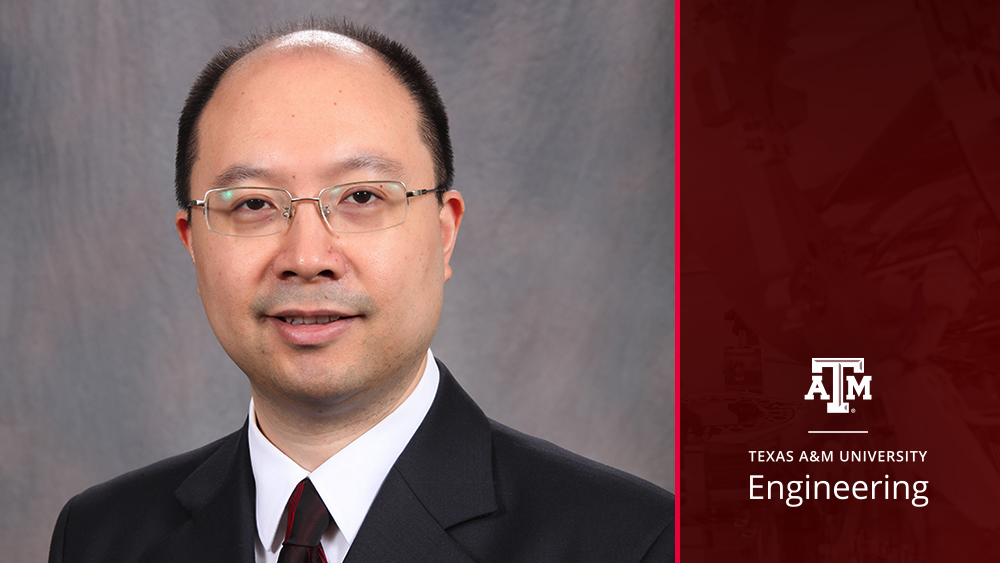
The human body is composed of molecules like DNA, RNA and proteins. Through interactions with each other, proteins act as the workforce molecules of life. Though the protein pairs that interact with each other have been increasingly identified, how they interact often remains a mystery.
Dr. Yang Shen, assistant professor in the Department of Electrical and Computer Engineering at Texas A&M University, will work on computational methods to unravel how proteins interact in living systems, which will allow for a better understanding of how biological systems work. This can ultimately lead to the development of therapeutics to combat diseases or illnesses.
For this research, Shen recently received the Faculty Early Career Development (CAREER) Award from the National Science Foundation (NSF) — one of the most prestigious recognitions given to researchers early in their careers that showcase the potential to serve as academic role models in research and education, and to lead advances in the mission of their department or organization.
“I am honored to receive this prestigious award and happy to join many of my excellent colleagues who have also received this award,” Shen said. “I am very excited that my ideas are supported and the project can be carried on because this is something I feel really devoted to and passionate about.”
Protein-protein interactions play a significant role in how our bodies function. Many of us are now attending virtual events or are on daily video calls. While participating in such activities, some proteins in our eyes’ retinas are converting light into signals. When this happens, some proteins in our nerves relay those signals to our brain, and other proteins trigger our neurons, which is when we begin to think about and understand the visual world. Another result of protein-protein interactions is the spread and the prevention of diseases within living systems. Using the COVID-19 pandemic as an example, during infection, certain receptor proteins of our body interact with the coronavirus’ spike proteins, so for the urgent need of treatment, antibody proteins are being developed to interact with and neutralize those viral proteins.
Shen will investigate these protein-protein interactions so that researchers have a better understanding of how living systems function and how therapeutics can be developed for diseases. He is developing algorithms using machine-learning and artificial-intelligence techniques that will treat proteins as multimodal data from which patterns can be mined and insights can be discovered.
Scientifically, the dark universe of protein-protein interactions has been pursued, experimentally and computationally, for decades. There are longstanding challenges to solve before we can 'light up' the dark universe. We don’t dream that they can be overcome in one day, but we have good rationales to believe that our project can make a breakthrough by combining physics and data in novel and advanced machine-learning models.
Shen’s interest in biological systems was born from his background in systems engineering.
“As an engineer, I am always curious about how things work,” Shen said. “My undergraduate training was in engineered systems, which eventually led to my interest in natural systems. Of course, the `parts’ and the `links’ are not so clearly defined in a living system. I’ve always been curious about how living systems function, but from an engineer’s perspective. As engineers, we can make unique contributions to perceive, approach and tackle the challenges in living systems.”
From cancer therapeutics to pest control, the project has wide applications. Shen hopes to use his findings to enable other research projects. He also hopes to use the findings to inspire new development of machine-learning and artificial-intelligence technologies, including how to represent domain knowledge and inform data models.
In addition to his research, Shen has two educational objectives for this NSF-funded project. The first is to enhance the accessibility of interdisciplinary data science training for a diverse student body and science researchers. The second is to foster the awareness and interest in interdisciplinary data science in middle and high school communities and the general public. He is working with several doctoral and master’s students on machine-learning and bioinformatics projects. He is also working with two undergraduate students on their theses, who are members of the Texas A&M Engineering Honors program.
“I’m very excited about the opportunity to work with our students and communities and look forward to more contributions to education and outreach,” Shen said.